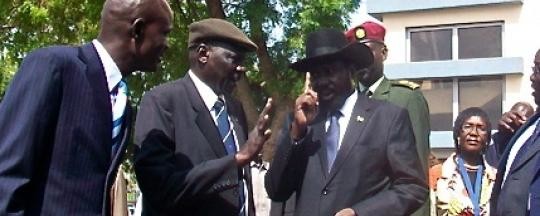South Sudanese political observers and members of civil society organizations have described the recent presidential order breaking up South Sudan’s ten states into 28 states as ill-advised and badly timed.
Lam Akol, leader of the national alliance of South Sudanese opposition political parties described the Establishment Order by President Kiir as “a flagrant violation of the constitution.”
He said the decision came contrary to all expectations either in terms of timing or in terms of legal and constitutional provisions. Akol further said the decision is a gross violation of the peace agreement that made it clear that power-sharing between the parties should be in the ten states.
The opposition leader pointed out that the decision would create complications of boundaries between administrative units.
For his part, the lawyer Agok Makur also described the order as illegal and unconstitutional. He explained that constitutional amendments must be approved by the parliament and Council of States. “The other thing that is well-known is that the country signed a peace agreement… which speaks of ten states.”
Agok pointed out also that the economic situation in South Sudan currently is not good, which would make it difficult to build infastructure for new state capitals and implement the decree.
Edmund Yakani, the executive director of Community Empowerment for Progress Organization (CEPO), said the decision is a good opportunity to open a dialogue between the government and armed opposition on federalism. However, he criticized the procedures for the decision, which was done without any consultation with citizens.
The activist pointed out that any action of this kind should be implemented through a referendum involving the people of South Sudan. He added that timing of the decision is inconsistent with implementation of the compromise peace agreement.
Meanwhile, Atem Simon, a political analyst and journalist, described the decision as “unstudied,” saying the decision came as a reaction to a previous proposal by the rebels to divide South Sudan into 21 states, which was itself rejected by the government.
Atem said the decision was taken without consultation within government institutions or even with the ruling SPLM party. He noted that the Establishment Order gives President Kiir powers to appoint governors and members of state assembly in the proposed States.
The South Sudanese journalist noted that any attempt by the government to reverse this decision will be rejected by those who welcomed it. “What type of federalism does the government of South Sudan wants by taking this decision?” he asked.




